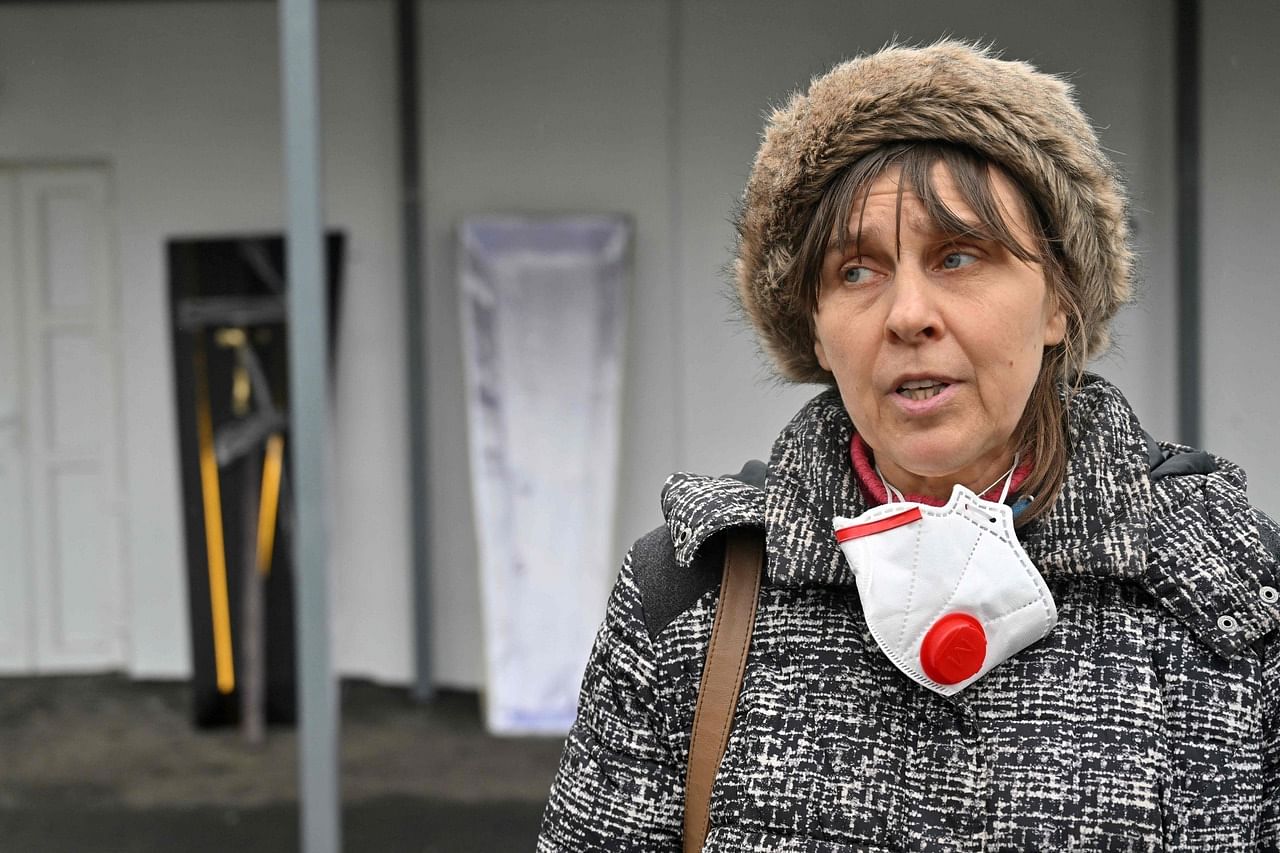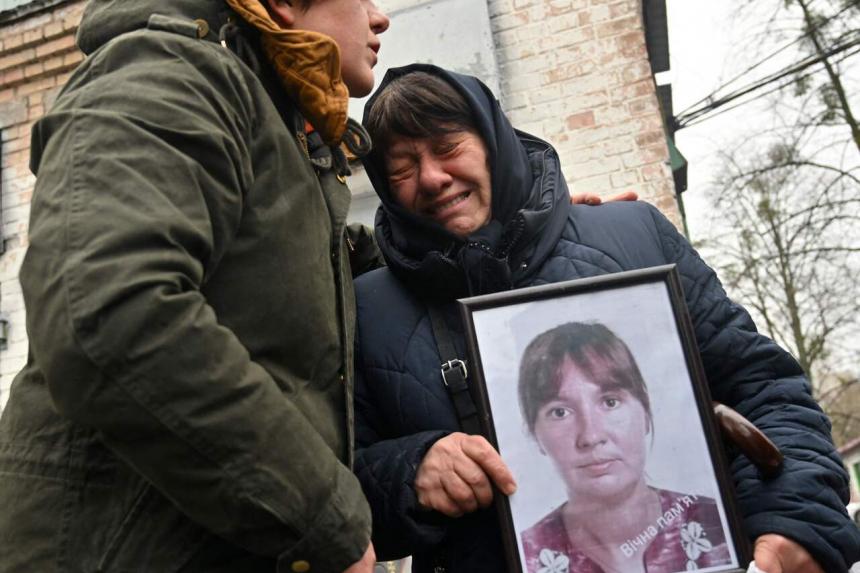BUCHA, Ukraine (AFP) - A sobbing mother, who had at last located and buried her daughter killed in tragedy-scarred Bucha, was held in a long embrace from a woman pushed by her own pain to try to help.
Mykhailyna Skoryk-Shkarivska, a mayoral adviser in the Ukrainian town synonymous with war crimes accusations against Russia, is aiding families in the grim process of finding dead loved ones in overwhelmed morgues.
She comprehends in a very intimate way their needs and feelings - her husband was killed in 2014 fighting pro-Russian separatists in Ukraine's east in Ilovaisk, the scene of a particularly bloody battle.
"I feel the pain of these people," she said on Friday (April 22) outside the busy morgue in Bucha, a town near Kyiv where some 20 civilians found dead on a single street sparked international condemnation.
"For me it's very personal, I understand how important it is for the families to be sure and to bury (their relatives)," she added, as black or white body bags were carried on a forklift to a morgue entrance.
Authorities have recovered over 400 bodies from Bucha since the fighting ended locally, both people killed during the Russian invasion and those dead from other causes, and the town asked surrounding morgues for help, leaving relatives scrambling to locate the remains of their loved ones.
"The problem was that the bodies are elsewhere and the relatives are here," Skoryk-Shkarivska said, noting that corpses were being brought back for families to identify and claim.
'Bodies don't scare me anymore'
Nadia Kovalenko's 45-year-old daughter Inna was killed on March 19 by an explosive strike while retrieving water for the family, and the woman's relatives temporarily buried her as the fighting raged around them.
After Russian forces retreated from the area, authorities came to exhume Kovalenko's daughter for examination and preparation for permanent burial - yet it took time to get her back.
"I had to come here maybe four days in a row, and there was a line" of people waiting, Kovalenko said on Friday. "We waited and we found her. Yesterday we buried her." She hugged Skoryk-Shkarivska as tears rolled down her face, and her body heaved with sobs.
"It's over. You did everything you could," Skoryk-Shkarivska said.
For other families though, their effort to lay their dead to rest is not yet complete.
"Today I came here, and I've been coming here for two weeks already, to look at the bodies and find my husband," said 52-year-old Tania Boikiv, with a mask and gloves she wears while looking at corpses in order to identify him.

She said Russian troops took her husband from their home and held him in a different village for two weeks and then beat him to death as they retreated.
One of her most significant leads is a photo a priest took of the dead that she believes shows him.
"The most terrible thing in my life is that my husband, my loved one, is gone. I don't know what could be worse," Boikiv told AFP.
"The dead bodies don't scare me anymore, compared to the tragedy in my life," she added. "It would be a consolation to bury him, to visit his grave."

